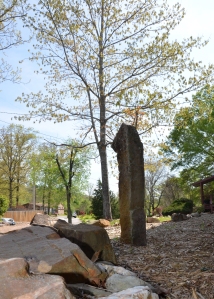Let this be a sign among you, so that when your children ask later, saying, ‘What do these stones mean to you?’[1]
Joshua 4:6 (NASB95)
We like to memorialize things. As a nation, I can only speak of the U.S. since that is where I live; we memorialize our independence on July 4th with celebrations ending with fireworks displays. We celebrate our freedom to worship as we please with Thanksgiving Day, usually with a turkey dinner. We celebrate the birth of Jesus at Christmas with nativity scenes and gift giving. We remember those who died for our freedoms on Memorial Day with the Tomb to the Unknown Soldier. As individuals, we celebrate our birthdays with cakes, candles, and gifts. We celebrate anniversaries with special dinners. I think it is fair to say that every culture finds ways to memorialize things.

Israel had a lot to celebrate. They had been delivered from Egypt. They were finishing forty grueling years in the desert. They were entering the Promised Land, and what an entrance it was! As the priests carrying the Arc of the Covenant set foot on the waters of the Jordan River, the waters backed up several miles upstream. Some would say that this could have been a natural occurrence, perhaps a convenient beaver dam or a landslide upstream. The problem with this explanation is that the Jordan was in flood stage during the harvest season. No natural phenomenon could possibly account for this miracle.
Joshua had replaced Moses as the national leader. God promised that He would provide Joshua something that would cement, in the people’s minds, that Joshua held God’s favor. What a better way than showing this new generation something that duplicated Moses’s parting of the Red Sea?
After all the people had crossed the Jordan on dry ground, Joshua ordered that a memorial be set up on the western shore of the Jordan. Twelve men walked back into the dry river bed, picked up twelve large stones and piled them in the shore. Why? So that the next generations would see them and ask what they were for. Parents would explain the events of this day, how God had delivered the nation from Egypt, brought them to a land flowing with milk and honey, and allowed them to cross into the land on dry ground. The event was memorialized.
Melanie and I have a stone set in our front yard as a memorial. We call it our Ebenezer Stone (1 Samuel 7:12 &13 when Samuel set a stone memorializing the victory over the Philistines). It reminds us that God has been involved in our lives. He has brought us to this place. He has brought us victory. It also serves to remind us that God is continuing to lead us through financial distress, emotional drama, and even our current physical ailments. God is in control. He knows what we need and will always provide it. Our stone stands as a testimony of God’s constant oversight of our lives.
We all memorialize things in our lives. If you are a believer, how have you memorialized God’s provision for you and your family? If you are not a believer, I encourage you to accept Jesus as your Savior, your Messiah, your Redeemer. He will memorialize your action by writing your name in the Lamb’s Book of Life.
[1] New American Standard Bible: 1995 update. 1995 (Jos 4:6). LaHabra, CA: The Lockman Foundation.
